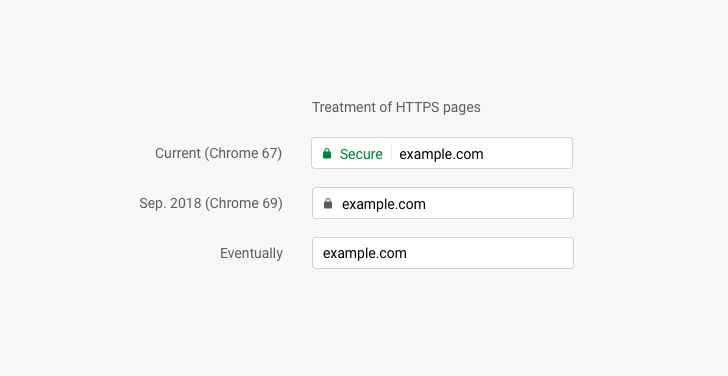latest

Nest products are known to be well designed, easy to use, and reliable. What they're not so popular for is their price, which tends to be quite high. When the brand launched its Secure starter kit, it priced is at $400, which was probably a bit too steep. However, its all-in-one alarm system is now available for $230-$250, making it far more affordable than before.The bundle includes the Guard base station, a pair of Detect sensors, as well as two RFID tags to disarm the system quickly. The hub features a built-in siren to deter intruders and connects to your network over Wi-Fi. It can be operated using your phone, the keypad or the included tags. The Detects are quite versatile, as they act as both motion and door or window sensors, depending on how you mount them. They're also designed to recognize your pet, so it doesn't inadvertently set off the alarm. Lastly, they can light up the path at night while you walk past them for added convenience. Of course, the kit can be extended to add more devices, with support for up to thirty Detects and ten tags, with the option to de-activate lost ones for extra security.

It’s been quite a while since we’ve heard the Sikur name, with the security-focused company last seen in February promoting its “hack proof” SIKURPhone. The company had 20,000 units available for pre-order, but they weren’t scheduled to ship until August. Like all its phones, the device essentially amounted to a very secure messenger and cryptocurrency wallet with few third-party apps.

ProtonMail is an email service that prides itself on airtight security for its customers. The latest update (v3.14 for web and v1.9 for Android) adds full PGP support and address verification, both intended to further secure communications.

Read update
- As pointed out by Madis in the comments, you can try out the new indicator behavior already by enabling the following Chrome flag #simplify-https-indicator.
Earlier this year, the team behind Chrome stated that all HTTP pages will be marked as 'Not secure' later on this year, in a bid to encourage even more site owners to move to the more secure HTTPS standard. We now know a little bit more about planned changes to Chrome's security indicators, including how HTTPS pages will be shown as default pages going forward.

The whole web is slowly marching towards HTTPS, especially since browsers like Chrome are starting to shame HTTP-only sites. After years of readers asking why we haven't already done so, I'm proud to announce that Android Police now supports HTTPS! If you're wondering what exactly that is, or why it matters, read on.

For years, HTTPS was regarded as only necessary for sites handling critical information, like bank portals. The movement for all sites to use HTTPS has gained traction over the past few years, partially thanks to the availability of free SSL/TLS certificates from Let's Encrypt, and partially thanks to browsers encouraging sites to switch. Starting with version 68, Chrome will start marking all HTTP sites as 'Not Secure.'

Synology is a Taiwanese company that specializes in hardware and software for network attached storage. It's not particularly known as a security company, but with the American government publicly demanding access to more or less all data on the planet, and other countries and less polite entities taking it without asking, the market is ripe to sell security products to wary consumers. Hence MailPlus, yet another secure and encrypted email system, this time independently hosted from a customer's Synology-branded NAS hardware.

This is a guest post by Ricardo "arcee" Cerqueira who takes things apart for sport, on a quest to understand how they work. He currently works on Android devices at Cyanogen.

Secure Settings is a complex Tasker/Locale plugin for rooted and non-rooted security conscious users alike. Version 1.3.5 of the app has gone stable, bringing with it a beefy changelog that should help the software play nicely with modern devices and give older handsets new perks as well.

We don't often cover Kickstarter campaigns – after all, the platform is flooded with entries that may not be worth mentioning, or are dead on arrival. Sometimes, though, a gadget comes through that exceeds expectations, and the myIDkey is one of those.

For the past few weeks, I've been testing Hideman - a VPN solution with a feature set I've been seeking for a very long time. I've been using both Android and Windows apps to test the service, and let me tell you - it is everything I was hoping it would be and then some.

We knew that Android 4.2 would see the introduction of new security features both on your device and in the Play Store, but Computerworld got a chance to speak with Android's VP of Engineering, Hiroshi Lockheimer, about the platform's beefed up security measures, specifically Android's new real-time app scanning utility.

Jean-Sebastien Royer, a developer making his debut on Google's Play Store, recently released Kainy – an app that promises to allow users to stream games from their PC over a Wi-Fi, 3G, or 4G connection. The first problem that comes to mind with this concept is devising a cohesive and broadly applicable control scheme. Addressing that in perhaps the most logical (and ingenious) way possible, Kainy allows users to create customized control layouts for each game.

Avira, a "worldwide leading supplier of self-developed security solutions," has thrown its hat into the Android security ring, releasing Avira Free Android Security to the Market today. The app offers a bevy of familiar anti-theft functions, including remote lock, scream, GPS tracking, and device info monitoring, among others.

Manilla, a popular account management/bill paying solution, has made the process of paying for goods and services even easier by releasing an app for Android today.

We recently started a new series of posts called the Mobile Security App Shootout, which focuses on keeping our devices safe and recovering them if lost or stolen. Along those same lines comes an amazing Tasker/Locale plugin centered around the device security called Secure Settings.

Remember the super-sweet anti-theft software Theft Aware that we first showed you back in November? The creators of said software have pinged us with some pretty rad info: the licensing has been tweaked so you can now transfer it to a new device!

Earlier yesterday, Google demoed some of Honeycomb's most impressive features, however one of its best features seems to have slipped under the radar. While playing around with the Motorola XOOM, Engadget noticed an "Encrypt Tablet" option in the settings page.














